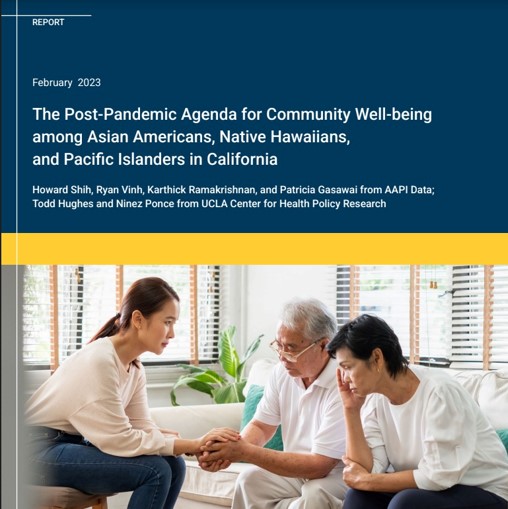The Post-Pandemic Agenda for Community Well-being among Asian Americans, Native Hawaiians, and Pacific Islanders in California
Final Report of the 2021 CHIS Follow-on Study of AANHPI
In collaboration with the California Health Interview Survey, conducted by SSRS
EXECUTIVE SUMMARY
The COVID-19 pandemic has adversely affected Asian Americans, Native Hawaiians, and Pacific Islanders (AA and NHPIs) in many ways—through economic hardship, negative health outcomes, and rising incidents of hate and violence. The pandemic also exposed fissures and challenges facing Asian Americans and NHPIs that were already deep-rooted in California. In June 2022, AAPI Data and the California Health Interview Survey (CHIS) released a baseline report that quantified these gaps, using pre-COVID data from the 2019-2020 California Health Interview.
Survey and the 2020 5-year American Community Survey. The baseline report revealed lower-than-expected enrollment in many services including CalFresh (which enables low-income residents to buy foods at many markets) and Medicare (a medical insurance program available to most Americans over the age of 65). Asian Americans and Pacific Islanders were also less likely to have a usual source of medical care and were significantly less likely to receive needed mental, emotional, or addiction treatment than White residents.
Building on the first report, we examine new data—from the 2019 and 2021 1-year American Community Survey Public Use Microdata Sample (PUMS) and the 2018-2021 California Health Interview Survey (CHIS), including a 15-minute follow-on survey for 2021 CHIS AAPI respondents—to identify trends in social service utilization and gaps in accessing health, mental health, and social services for AA and NHPI communities in California.

